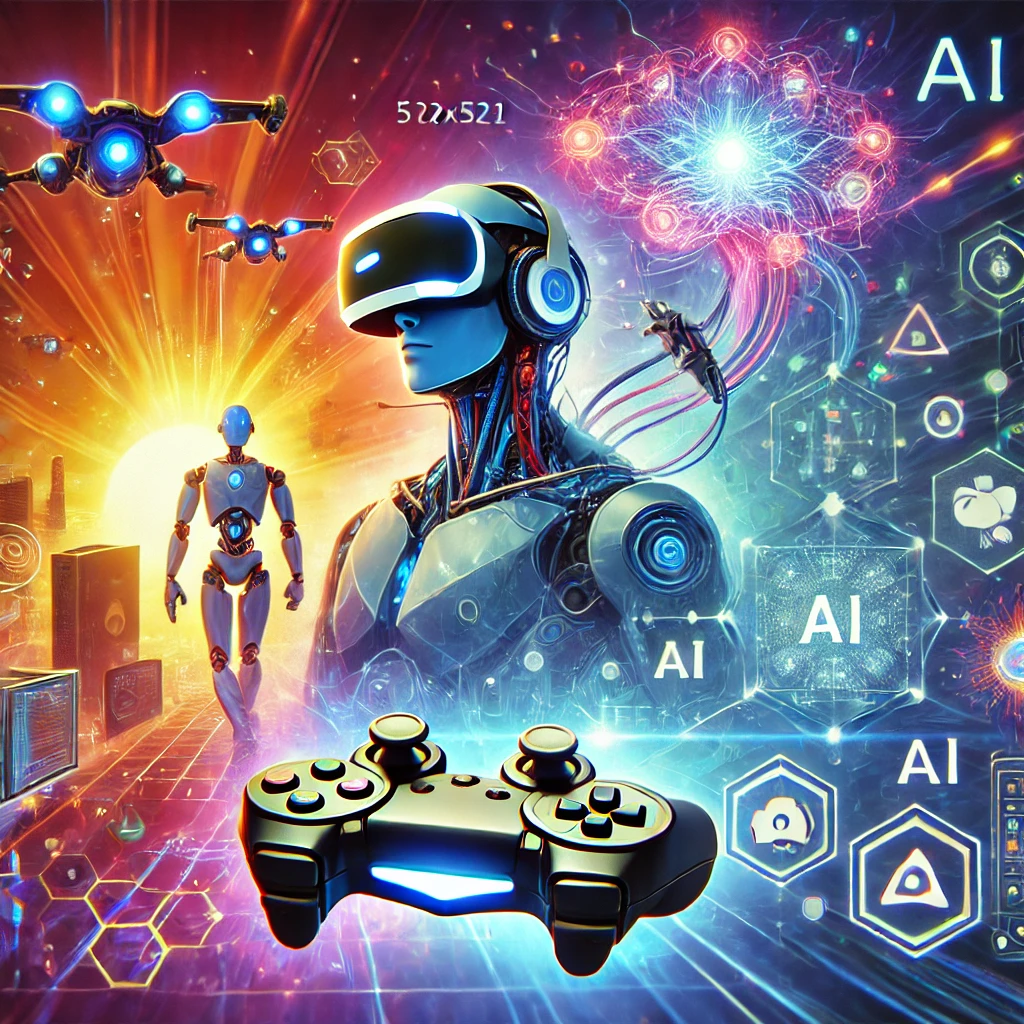
AI Transforms Game Design and Enhances Player Experiences in Unprecedented Ways
The Evolution of Game Design Through AI
Artificial Intelligence (AI) is no longer a futuristic concept; it is a reality that is drastically changing various industries, including game design. From creating complex virtual worlds to personalizing player experiences, AI is redefining the way games are developed and played. In this article, we’ll delve into how AI is transforming game design and offering unparalleled player experiences.
AI in Procedural Content Generation
One of the most significant impacts of AI in game design is procedural content generation. AI algorithms can automatically create expansive and detailed game worlds, significantly reducing the time and effort needed for manual design. These procedurally generated environments are not only vast but also rich in detail, providing players with unique experiences every time they play.
Examples of Procedural Generation in Modern Games
Games like “No Man’s Sky” and “Minecraft” have successfully implemented procedural generation to create limitless worlds for exploration. AI algorithms ensure that no two players encounter the same environment, adding a layer of uniqueness and replayability to these games.
Enhanced NPC Behavior and Interactions
Non-Player Characters (NPCs) are a critical component in most games, serving various roles from allies to adversaries. Traditionally, NPC behavior has been scripted, leading to predictable interactions. However, AI has revolutionized NPC behavior by enabling more realistic and dynamic interactions.
Machine Learning for Adaptive NPCs
Machine learning algorithms train NPCs to adapt to players’ actions, making interactions more engaging and challenging. For instance, in “The Last of Us Part II,” NPCs exhibit complex emotions and adapt their strategies based on the player’s actions, resulting in a more immersive experience.
Personalized Player Experiences
One of the most intriguing applications of AI in game design is the ability to tailor experiences to individual players. By analyzing gameplay data, AI can adjust game difficulty, recommend in-game items, and even alter storylines to suit individual preferences.
Dynamic Difficulty Adjustment
Games like “Left 4 Dead” use AI to monitor player performance and dynamically adjust the game’s difficulty. This ensures that players are consistently challenged, but not overwhelmed, providing a balanced and enjoyable experience.
Tailored Content Recommendations
AI can also be used to recommend in-game items, missions, or even other games based on a player’s history. This personalization keeps players engaged and enhances their overall gaming experience.
AI Tools for Game Developers
AI is not just beneficial for players; it also offers valuable tools for developers. AI-powered software can assist in various stages of game development, from initial concept creation to final testing.
AI in Game Testing
AI-driven testing tools can quickly identify bugs and glitches, ensuring a smoother and more polished final product. Tools like “Applitools” and “Sikuli” have revolutionized the QA process, making it more efficient and reliable.
AI for Creative Assistance
AI can also assist in the creative aspects of game design. AI-driven tools can generate concept art, design levels, and even compose music, providing a comprehensive suite of resources to game developers.
The Future of AI in Gaming
The integration of AI in game design is still in its early stages, but its potential is immense. As AI technology continues to evolve, we can expect even more innovative applications that will further enhance player experiences and streamline the game development process.
Upcoming Trends
Future trends may include advanced AI-driven storylines, where the narrative evolves based on player choices, and even more sophisticated NPC interactions that mimic human behavior. Additionally, the use of AI in virtual and augmented reality gaming could offer even more immersive experiences.
Challenges to Overcome
Despite its potential, the integration of AI in game design comes with its own set of challenges. Ethical considerations, such as the use of player data and the risk of creating overly difficult or easy games, are issues that need to be addressed. Moreover, the high cost of implementing AI technologies can be a barrier for smaller game developers.